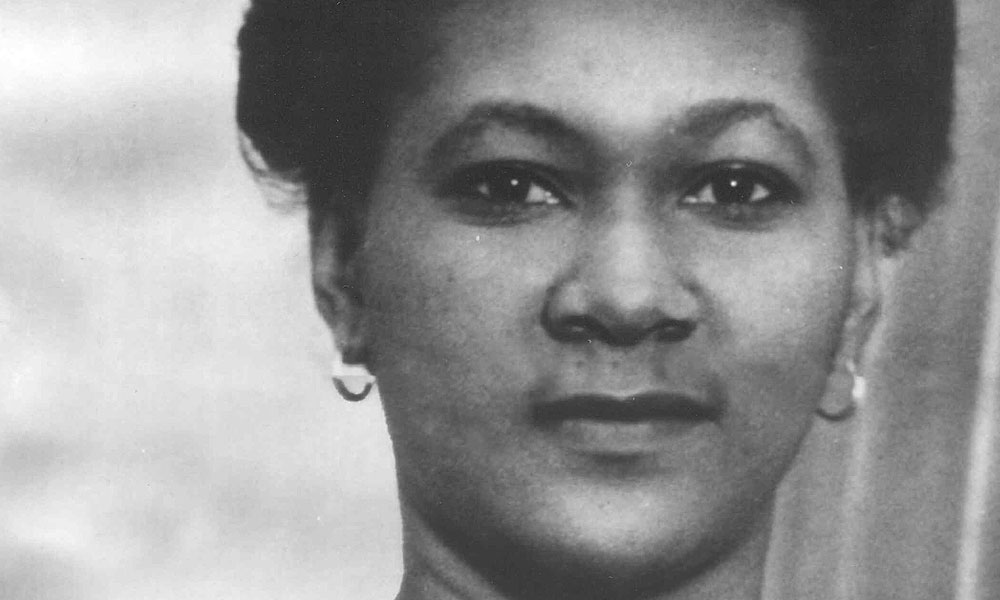
Isa A. E. Bradley the daughter of Thomas Bradley and his wife, Blanche Wattley was born in New Town on the 19th May 1877. The family lived in Salt Pond Alley, then also known as Sugar Loaf Alley, in a house that has belonged to John Thomas Bradley a stevedore. Unmarried and with no children of her own, Bradley was devoted to the teaching profession.
Her career started at as a pupil teacher at the Moravian School in the district of Cayon. After a course at Spring Gardens, Antigua, she returned to her school and was appointed headmistress. On April 1st, 1915, Government took responsibility for the running of all denominational primary schools except St. Joseph’s Roman Catholic School. Bradley was appointed Headmistress of the Basseterre Girls’ School. Her salary was fixed at £50 per annum but she also received a result grant of £36.11s 7d per annum, an allowance of £6 per annum for quarters and a bonus of 15%.
In this capacity she was responsible for the early education of many girls in the Basseterre area. Once these young ladies reached the Seventh Standard, the final class in Elementary School, she would choose the most promising of them to instruct as pupil teachers. Her training went beyond the class room and she was known to encourage good deportment and discretion in the choice of friends. Among the girls she tutored were three daughters of J. Matthew Sebastian, Ismay Burt, and Gwen Whattey all of whom followed in her footsteps and became highly admired teachers in their own right. A strong disciplinarian, she was respected by students and teachers alike. Bradley retired in 1935. Her career was celebrated with songs and recitations at the Basseterre Girls School.to which past students were invited and some paid tribute to their former teacher. She then bought an automobile which she placed in the hands of a certain Mr. Warner and departed for an extended vacation in the United States where she visited friends and family. However Bradley did not quit teaching. Instead she kept a small private school at her residence at Stainforth Street.
Bradley was a member of the Mutual Improvement Society and joined the Universal Benevolent Society in its early days. Because of her employment she had to keep a low profile and could not come out in total support as Sebastian was able to do. However Bradley was an outspoken person and could not keep quiet for long. She soon became a member of the Board of Directors of the Workers’ League and during the 1937 campaign she was very visible on the League’s platform. The Colonial Government was facing challenges throughout the Caribbean. In a speech she made in Old Road during the 1937 campaign she was reported to have told her listeners how a certain German minister had referred disparagingly to her pupils. It was one of several illustration she gave to show that “no white man should be elected to the Council”. Edgar Challenger, Vice President of the League quickly disassociated himself from her statement stating that it was not the League’s policy to encourage such ideas. However the slogan caught on and labourers in various localities were heard repeating it.
Later that year Marcus Garvey visited St. Kitts and was welcomed on arrival by J. Matthew Sebastian who was accompanied by “an ex-woman school teacher of ‘constitutional prominence’”. Since no other retired female school teacher is mentioned as having been actively involved in the political activities of the time, it is reasonable to conclude that this person was Bradley. Whilst the Administrator, surmised Sebastian’s role in welcoming Garvey was “a service ... in the public interest,” he made no similar conjecture regarding Bradley. Her earlier comments and her presence in the welcoming party indicate strong, publically manifested affinities with Garvey’s ideology. At a time when women were expected to take a back seat in politics, she seemed to be quite eager to take on a highly visible role and to align herself with , what was then a controversial movement of black consciousness..
Isa Bradley was also a founding member and vice-president of the Teachers’ Association, the formation of which was seen as ‘a pity’ by Administrator Burdon. His real concern with regards to its existence was that its officers were friendly with the managers of the Universal Benevolent Association in particular with J..M. Sebastian.
Bradley was part of a Kittitian coloured elite which was made up of merchants, planters, teachers, druggists and other professionals with a secure income, a sound educational background and a deep sense of achievement. For them the restrictions imposed by the Colonial Administration was a stumbling block in their quest for personal fulfilment and economic advancement.
Isa Bradley died on the 25th September 1947. She had been a teacher for fifty-eight years.




